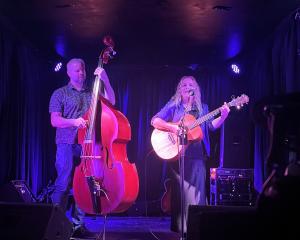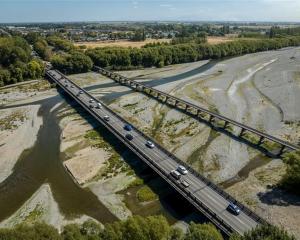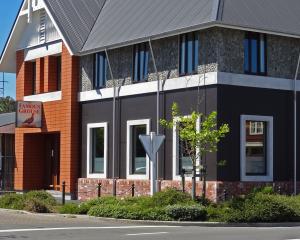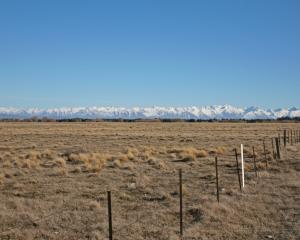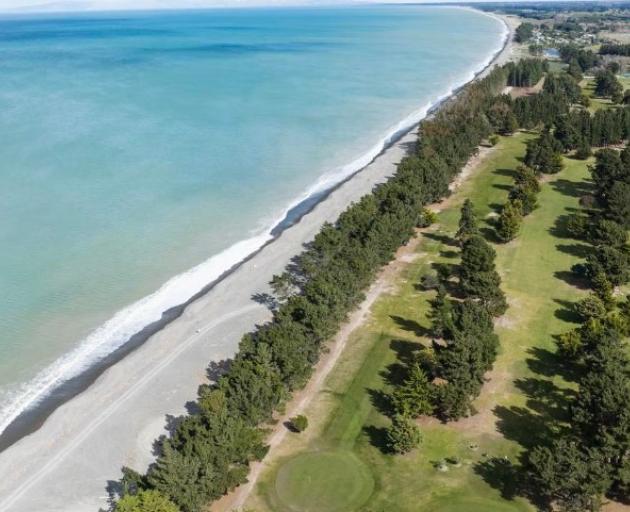
To save the fairway, the 101-year-old links course will need to secure an “impossible” consent to build a road over a protected wetland.
Amberley Golf Club in North Canterbury boasts 220 members but attracts nearly 4000 patrons a year, many of whom visit from nearby Christchurch.
There is only one way to access its picturesque 18-hole course - a scenic coastal drive down a dusty road that runs parallel to the town’s beach.
In recent years, the road has been flooded on a consistent basis as rising sea levels contribute to high tides and stormy weather.
It has forced the club and local council to build an alternative road to access the course, but the million-dollar question is where to put it.
An option was tabled at a Hurunui District Council meeting in February, with the local authority keen to see a road built north of the course.
However, doing so would cut off the club’s 14th hole and require two other holes to be modified.
According to the golf club’s president, Bruce Yates, the proposed road also lengthened the journey to reach the course by 2.5km.
“We felt it was totally ridiculous,” he told the Herald.

The only problem with this suggestion, Yates said, comes in the form of a 30m strip of wetland smack in the middle of where their road would run.
Ministry for the Environment rules introduced in 2020 heavily restricted the works that could be carried out in and near wetlands.
In order for the golf club to have its proposed road built and save its course, it would need to secure consent from Environment Canterbury.
Despite the road being the more expensive and complicated option, local councillors opted last week to explore the possibility of gaining consent.
But organisers aren’t out of the woods yet.
The council’s CEO, Hamish Dobbie, told Yates and the club that he would organise a pre-application meeting with the regional council - but hopes aren’t high.
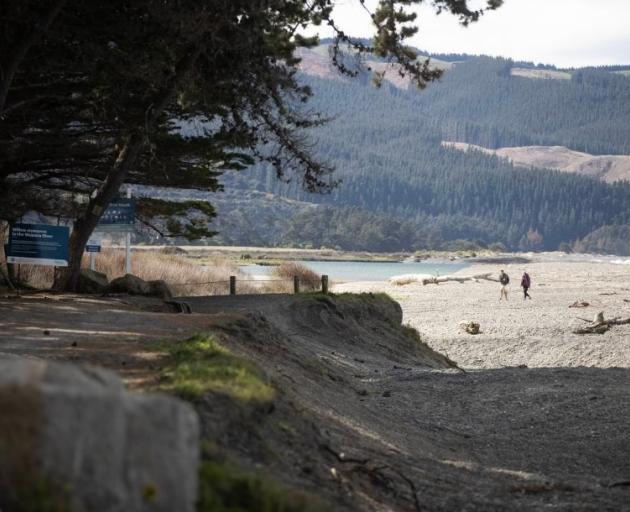
“But we’re hoping that’s not the case.”
Yates said the golf club spoke with an Environment Canterbury ecologist who believes a culvert could possibly be installed to protect the wetland and secure consent.
The alternative, Yates said, is seeing their course and business impacted.
“You can’t have a 16-hole golf course, we’ve got a beautiful course and it’s a great place to come to,” he said.
“Close to 4000 people come here, being close to Christchurch, because they’re virtually guaranteed a free game - so that’s the scale of risk we face.”
A council report from August comparing the two options highlighted the consent problems with the golf club’s preferred option.
“There will potentially have to be consideration of multiple plans and legal instruments,” the report, authored by Dobbie, said.
However, Hurunui District councillor Garry Jackson told the Herald the percentage chance of gaining consent is not zero.
“None of us are using the word impossible,” he said.
“We understand it’s more complex and time-consuming, but nobody is rejecting this option just because of consent. We agree the issues need to be investigated further before we make a final call.”
By Nathan Morton



